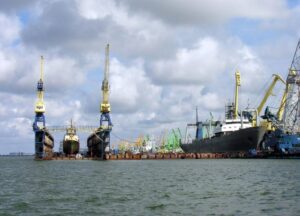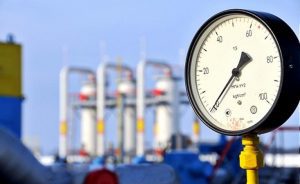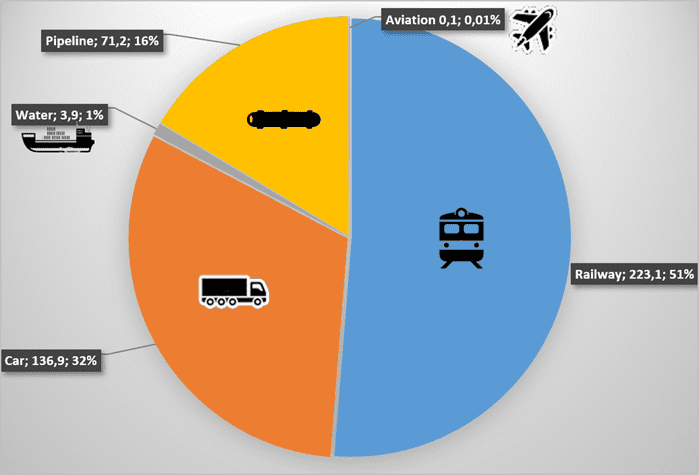
The rise in railway tariffs for freight transportation may increase the load on road transport and road infrastructure, as well as increase prices for final products in the energy and construction sectors.
This opinion was expressed by representatives of core business segments at a press conference at Interfax-Ukraine.
“Ukrzaliznytsia, as a monopoly carrier, is once again simply raising tariffs. What will this mean for the cement industry: firstly, the prices for the transportation of coal will rise, and secondly, the prices for the transportation of raw materials and additives to cement will rise. Thirdly, prices will rise directly for the final product for the consumer,” Executive Director of the Association of Cement Producers of Ukraine (Ukrcement) Liudmyla Kripka said.
According to preliminary estimates of the association, such an increase in tariffs will affect both the cost of cement and the final product for the consumer by about 5-8%, which, in turn, will increase the cost of construction projects.
At the same time, Kripka said that Ukrzaliznytsia may not receive the expected income from the increase in tariffs due to the transfer of enterprise logistics to the segment of road transportation.
“As a result, Ukrzaliznytsia will not receive income, but the load on road transport will increase,” she said.
Director General of the Federation of Transport Employers of Ukraine Volodymyr Husak agreed with this forecast. According to him, Ukrzaliznytsia will not be able to implement the plan to receive about UAH 2 billion by the end of this year from the increase in freight rates.
“This money will not be available, as we will see an accelerated withdrawal of Ukrzaliznytsia’s clients primarily to highways. This trend has been observed for several years… Due to the reorientation of goods to highways, there will be an additional load. Roads will collapse faster. There will be no effect from the implementation of the Big Construction program of the President of Ukraine,” he said.
In addition, Husak said that due to the rise in the cost of transportation of building materials – crushed stone, cement – the volume of the Big Construction program will also decrease.
At the same time, maintaining low prices in the passenger segment and an increase in the cost of cargo transportation will ultimately lead to an increase in tariffs in the energy sector, Deputy Chairman of the Federation of Employers of the Fuel and Energy Complex of Ukraine Serhiy Chekh said.
“What will the implementation of this order [of the Ministry of Infrastructure] mean for us, power engineers? This is extra UAH 40-50 per tonne of transported coal and about 3% growth in the cost of electricity at the exit from the thermal power station,” he said.
Experts emphasize that for the effective development of the rail transport market, it is necessary to ensure equal competitive conditions, introduce projects for the use of private locomotives, and update legislation in this area. In addition, it is necessary to update the management and supervisory board of Ukrzaliznytsia for effective governance, to carry out its reform in accordance with the government’s plans.
As reported, earlier in July, the Ministry of Infrastructure of Ukraine published a draft order on a two-stage increase in tariffs for cargo transportation of a group of goods of 1 and 2 tariff classes from September 2021 by 8%, and from January 2022 – by 20.4% and 6.5%.

The profile ministries of Ukraine and Lithuania have agreed to launch a pilot project to develop multimodal transportation between the countries, according to the website of the Ministry of Infrastructure of Ukraine on Thursday.
In Klaipeda, Lithuania, a meeting was held between Minister of Infrastructure of Ukraine Oleksandr Kubrakov and Minister of Transport and Communications of Lithuania Marius Skuodis, during which the parties discussed issues of strengthening cooperation and prospects for new projects.
“Partnership in the field of transport is one of the priorities. We are restoring a dialogue on the implementation of an old idea – connecting the Baltic and Black Sea regions by rail. For both countries this is a chance to optimize logistics, increase the load on seaports and enter new world markets. We have already agreed to launch a pilot project, within the framework of which we will develop multimodal traffic between countries, including by increasing the flow of semi-trailers,” Kubrakov is quoted as saying.
He also noted the relevance of the resumption of the passenger railway route “four capitals” from Kyiv to Riga.
According to the Ministry of Infrastructure, there are currently large cargo flows between the Baltic and Black Sea regions, but the share of cargo moving from Ukraine is very low. At Klaipeda seaport, Ukrainian cargo accounts for only about 1-2% of all cargo. At the same time, according to the estimates of the Lithuanian side, the flow of goods from Ukraine could potentially be 10 times higher.
“For the implementation of multimodal cargo transportation by sea and rail, road semi-trailers will also be used as intermodal transport units. To make this possible, the ministry will initiate amendments to Ukrainian legislation, which will allow semi-trailers to be classified as cargo, and not as a vehicle,” the report said.
The launch of the pilot project is planned for September this year.
The successful implementation of the agreement, as noted in the Ministry of Infrastructure, has the potential to make Klaipeda seaport in Lithuania the northern gateway of Ukraine to Scandinavia and at the same time Odesa – the southern sea gate of Lithuania to the Black Sea region.
BALTIC STATES, BLACK SEA, DEVELOPMENT, LITHUANIA, TRANSPORTATION

The Infrastructure Ministry of Ukraine has supported the implementation of the Dnipro Transportation investment project of the Ukrainian Danube Navigation, according to the shipping company’s Facebook page.
The company emphasizes that the approval of the investment project by the relevant ministry is an important and decisive step for signing appropriate credit agreements with international financial organizations.
The Dnipro Transportation investment project provides for building 16 pusher tugs with hybrid diesel engines, 31 Europe-2 class barges, as well as building and overhauls of five locations for the layover and maintenance of the fleet, etc.
The total cost of the project is more than $ 200 million.
“In the future, PrJSC Ukrainian Danube Navigation will continue to work on the implementation of the Dnipro Transportation project with international financial organizations, the Ministry of Finance of Ukraine and the transport committee of the Verkhovna Rada to obtain appropriate state guarantees and work out the involvement of a wider range of international partners in the project on mutually beneficial commercial terms,” the report says.
The company also emphasizes that the implementation of the project will allow the implementation of measures to revive the E-40 river route, use the transit potential of the Dnipro River, as well as reduce the load on Ukrainian roads and railways, create orders for the shipbuilding industry and reduce the volume of pollutant emissions into the air.

NJSC Naftogaz Ukrainy in 2020 rendered services to PJSC Gazprom (Russia) in organizing transportation of natural gas through the territory of Ukraine for $ 2.11 billion.
“For 2020, Gazprom fully paid for the annual capacity of the Ukrainian gas transmission system (GTS) for gas transportation. According to the agreement dated December 31, 2019 between Naftogaz and Gazprom, the cost of booking 65 billion cubic meters of annual capacity is $ 2.1 billion. In addition, in the fourth quarter of 2020, Naftogaz additionally rendered services to Gazprom for the use of the Ukrainian gas transportation system, for which it receives over $ 30 million,” the press release of the company said.
According to the company, the total volume of Russian gas transported in 2020 amounted to 55.8 billion cubic meters.
Volumes of cargo transportation in Jan-Sept of 2020, MLN tons.


Income from domestic cargo transportation of JSC Ukrzaliznytsia in October 2020 increased by 3.2% against October 2019, up to UAH 2.2 billion.
According to the press service of the company on Monday, in September, income from domestic cargo transportation was 6% higher (compared to September 2019) and amounted to UAH 2.1 billion.
According to Ukrzaliznytsia, such indicators became possible due to organized route departures, improved operational efficiency, improved dispatching, and elimination of the locomotive shortage by extending the service legs.
It is reported that the largest increase in income in September-October was recorded in transportation of mineral construction materials, ferrous metals, iron ore and grain cargo. In addition, the positive dynamics of income was shown by transit freight rail transportation, amounting to 19.5% and 5.9%, respectively. In monetary terms, income from transit traffic amounted to UAH 635.6 million in September, and UAH 523 million in October.
Income from domestic cargo transportation of JSC Ukrzaliznytsia in October 2020 increased by 3.2% against October 2019, up to UAH 2.2 billion.
According to the press service of the company on Monday, in September, income from domestic cargo transportation was 6% higher (compared to September 2019) and amounted to UAH 2.1 billion.
According to Ukrzaliznytsia, such indicators became possible due to organized route departures, improved operational efficiency, improved dispatching, and elimination of the locomotive shortage by extending the service legs.
It is reported that the largest increase in income in September-October was recorded in transportation of mineral construction materials, ferrous metals, iron ore and grain cargo. In addition, the positive dynamics of income was shown by transit freight rail transportation, amounting to 19.5% and 5.9%, respectively. In monetary terms, income from transit traffic amounted to UAH 635.6 million in September, and UAH 523 million in October.
As reported, from November 1 to November 19, Ukrzaliznytsia loaded more than 15 million tonnes of cargo, which is 6.2% more than in the corresponding period last year.As reported, from November 1 to November 19, Ukrzaliznytsia loaded more than 15 million tonnes of cargo, which is 6.2% more than in the corresponding period last year.